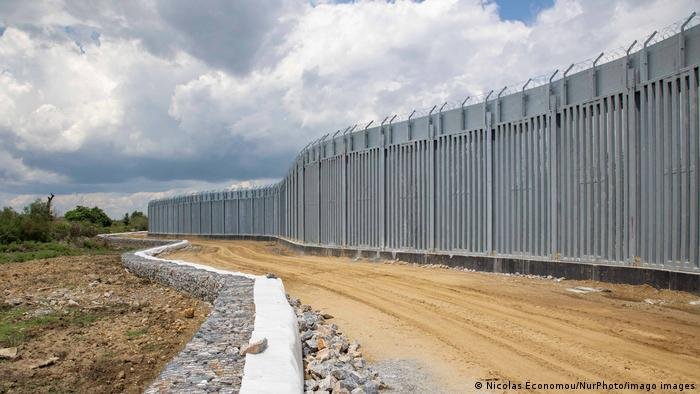The total length of the land border between Greece and Turkey is about 200 km. Greek authorities have been building a border fence since 2020, part of which has already been built for 37.5 kilometers. An immediate decision has been made to build the first 35 kilometers in the central part with a budget of 100 million euros and the tender will be announced soon.
From the point of view of the Minister of Protection of Citizens of Greece, ‘our neighbors know very well that there is no room for continued exploitation of the unfortunate people, the borders of Greece at Oros are impregnable and there is no doubt about it’. The Greek police prevented 256,000 illegal immigrants from entering the country in 2022 and arrested 1,300 human traffickers. Greece has put an end to illegal immigration and Greeks can be sure that the problem of illegal immigration led by neighboring Turkey will be effectively solved’.
In December 2022, Greece announced that it would deploy 250 border police to intensify patrolling and surveillance measures near the Oros area on the Turkish border.
In the past, part of this wall was built to prevent entry of illegal immigrants from Turkey to Greece. This decision was taken in order to block the entry of illegal immigrants into Europe. The height of this wall is two and a half meters. On the wall, two rows of barbed wire equipped with electric shocks and dozens of CCTV (closed-circuit television) cameras will be used to control the borders.
Initially, the length of the wall was supposed to be 206 km, but due to internal opposition, its length was reduced. The Greek officials have repeatedly emphasized that their country has cooperated properly with other European Union countries in preventing the entry of immigrants and plans to build a wall at the current stage in order to solve the problem of illegal entry of immigrants and at the same time cooperation in border guarding among the members of the United Europe is also going done.
The flat lands of “Evros” and the Turkish river “Meric” and its delta are the common borders of the two countries. In the past, Greece had requested help from the EU Border Guard Agency for (aerial border mapping) and border protection, and the agency had started working with 200 Greek authorities in this field. The EU authorities have helped Greece a lot to control the borders as well as the reception and control of migrants in refugee camps.
Most of those immigrants reach Greece illegally from Turkey. Since 2013, Greek authorities have built around 50 camps for illegal immigrants across the country. Different statistics are given for the number of illegal immigrants in Greece, most of them are from Pakistan, Afghanistan, Iraq and North Africa. African migrants used to enter Greece via the Mediterranean by boat, but now prefer Turkey’s land borders.
From Greece’s point of view, in order to protect the borders, neighboring countries should also cooperate, and the fight against immigration is the duty of all European member states. Many countries support the strengthening of organizations such as Frontex (European Border and Coast Guard Agency), which is active in the field of combating illegal immigration.
Recently, the Ministry of National Defense of Turkey revealed that a drone of the country’s navy recorded images of Greek forces illegally pushing back a boat carrying illegal immigrants into Turkish territorial waters. Such illegal Greek deportations were recorded north of the Greek island of Lesbos in the Aegean Sea on December 30.
Greece’s immigration policies have been repeatedly criticized by Turkey. In his recent speech, the president of Turkey severely criticized Greece regarding its approach towards immigrants and said that the approach of the western neighbor towards immigrants has now reached the stage of cruelty, and unfortunately, Western countries do not give any response to this cruelty of Greece. He said they were all deeply moved by the indifference to the images of border guards and refugee shelters that resemble Nazi German camps. In the fight against terrorists, a similar approach is seen by hiding behind the phrase “political asylum seeker”.
In recent years, Turkey has been a key transit point for illegal immigrants who intend to go to Europe. According to Turkish media, this country currently hosts 3,535,898 Syrian immigrants and has prevented 280,206 illegal immigrants from entering the country in 2022. The number of arrested illegal immigrants was 236,572 and the number of deported illegal immigrants was 124,441 this year. Despite the above statistics, Ankara is taking new security measures at its borders to prevent the influx of migrants. Turkey’s role in creating a springboard for migration to the West, which is undoubtedly linked to the security sector, has always caused concern in Brussels.
International human rights groups have repeatedly condemned the “migration management scandal” and Greece’s series of illegal actions in pushing back asylum seekers, saying that this action violates humanitarian values and international law by endangering the lives of vulnerable people, including women and children.
Although Greece’s anti-immigration policies, especially after the conservatives came to power, have helped to significantly reduce the number of people entering the country’s borders, but the country’s inefficient immigration management is still criticized by international circles. Refugee camps in Greece have become a mere place to confine refugees with dire consequences for the response of local communities, and the growing anti-immigrant sentiments among the local population have been in stark contrast to the welcoming attitudes observed during the influx of refugees in 2015-2016.










0 Comments